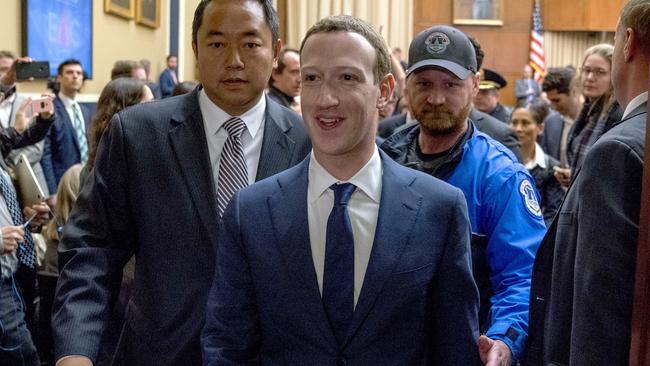Facebook, the company that loves your friend’s misery

Several studies, most recently one out of San Diego State University analysing the leisure activities of a million teens, have concluded that the more time spent on Facebook, the less happy we tend to be.
We’ve known for a while that Facebook enables online communication with friends and family — but also a sharply targeted form of bullying. That it wastes our time. That, whatever relationships it nurtures, it kills off others entirely. That it is, on a good day, charming, assaultive and a loathsome bore. The misinformation that sprouts like toadstools on its pages isn’t even the whole of the problem.
I quit Facebook a few months before the 2016 election, cold turkey like the junkie I knew I was. I had been working on a novel, and Facebook was ruining my productivity. I found myself itching to check it again and again, wondering what exciting developments had unfolded in the minutes I spent away.
Soon after I suspended my account, my husband began getting emails from our friends asking why I had suddenly unfriended them. One was upset that — after I had relied for years on Facebook’s reminders — I had missed her birthday. This is precisely how Facebook holds our attention and makes us afraid to depart its endless reunion.
I returned to Facebook a year later, to find old friends had won new jobs and given birth to children during my absence. I caught others mid-divorce, before their crises had cooled and wounds had healed. I engaged in pointless arguments that left me anxious and blue. I read screeds born of pain, and scarcely resisted the urge to unleash screeds of my own. I watched as people gave themselves away — the good, yes, but also so much unsettled fury and despair. Some of this from people whose intimacy I hadn’t earned, but whose private lives I could nonetheless view because the houses on Facebook are made of glass.
In 2010 Zuckerberg announced that the old social norm of privacy had “evolved”— a fortuitous discovery for someone who had devoted his life to whittling others’ privacy away. Indeed, Facebook’s essential conceit is that privacy is outmoded — the corset we never wanted and are so much freer without. But privacy is also a shield, and it protects subject and observer alike. There are details we shouldn’t know about those who are less than our closest friends. Other things, like fury and snark, shouldn’t be indiscriminately broadcast, because far from bringing us “closer together” — Facebook’s ostensible mission — they set us at odds, tear us apart.
The Cambridge Analytica scandal came on like a slap, the kind that breaks the spell and makes you wonder what on earth you’ve been doing. How had we given so much away? We squandered assets we may never regain — privacy, dignity — and for what? We registered as Facebook users imagining ourselves vacationing at a new resort, but it turned out to be a nudist colony. And while we were all growing accustomed to the squirmy unease of seeing way too much of each other way too often, Zuckerberg allowed someone onto the premises to catch us unguarded and take advantage.
Are we really surprised? Zuckerberg’s promise to protect our data is laughable because exploiting our data is precisely his business. When we saw the evidence of a creeping monitor — that sofa we browsed on Amazon, flashing to life on our Facebook page — we knew this habit meant trouble.
Over the years, Facebook pushed us to share more of ourselves. “What are you doing right now?” became “What’s on your mind, Abigail?” It jiggered the order of posts to keep our navels and our friends’ well-gazed, all the while rendering us more vulnerable to abuse. It gathered our email addresses and phone numbers. For those who use Android phones, it stored our call history and text messages. When we discovered our pockets had been picked, Facebook suddenly seemed more hustler than host; its endless party, one great confidence scheme.
And now, congress is calling on Zuckerberg to fix the problem as if the problem weren’t Facebook itself. He would do well to spare us the chorus of righteousness and PR mumbo-jumbo: “openness,” “connectedness,” “sharing,” “community.” Is there any piece of data about us that, on principle, Zuckerberg wouldn’t monetise? He needs no forensic audit to render an answer. He could simply envision his “users” as people and tell us the truth.
The Wall Street Journal



For more than a decade Mark Zuckerberg has been running an experiment in openness. We are the test subjects. So what does he think about the fact that being “open and connected,” Facebook -style, is making us miserable? Our congressional representatives didn’t pose this question to Zuckerberg during his hearings this week, but I wish they had.